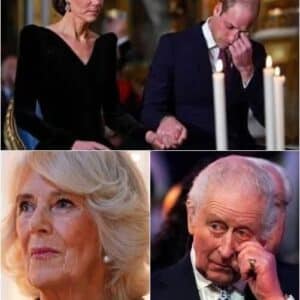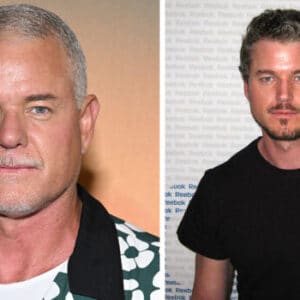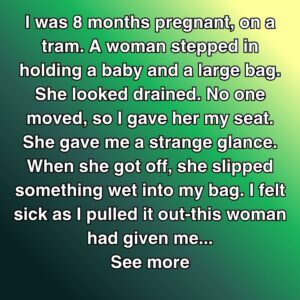A month in, my girlfriend told me she was pregnant. I was stunned, suspicious even, but I swallowed the doubts and proposed. We married at the courthouse three months later; her belly already showing, me promising myself love would grow to fill the space where certainty was supposed to be.
Eight years passed. At my best friend’s bachelor party, one of the guys raised a beer and said, “Man, I still can’t believe Jill chose you. I was sure she was gonna stick with Sam when she—”
Silence thudded through the room. Most people didn’t clock it. I did. Sam?
I laughed like it was nothing, finished my drink, lied about an early meeting, and drove around in circles until the city blurred. Jill had mentioned an ex once: “toxic,” “dramatic,” end of story. I’d never pushed because I didn’t want to look insecure. But now the name rattled in my skull like a coin in a dryer.
I didn’t sleep. I lay beside Jill listening to her breathe, replaying how fast everything had happened. We weren’t even official when she told me. “I want to keep it,” she’d said, calm and terrified at once. “But only if you’re in it with me.” I said yes because I wanted to be that man. Because it felt like the right thing.
I called the guy from the party a few days later under the pretense of asking about tile grout. Then I slipped it in: “When you said Sam… you meant Jill’s ex, right?”
He hesitated. “Uh, yeah. You didn’t know? You kind of swooped in right after they split. Everyone thought they were getting back together.”
I hung up on a fake text and sat staring at the wall. There are a hundred reasonable explanations, I told myself. And then I booked a paternity test.
Two weeks of pretending work was stressful. Two weeks of being short with the cashier and too quiet at dinner. When the email arrived, I opened it in the grocery store parking lot. Probability of paternity: 0%.
The world narrowed. I read it again and again as if persistence could change statistics. It didn’t.
I drove to the beach and watched the water hurl itself at the shore until the sky turned the color of bruises. I didn’t blame Elara. She was my daughter in every way that had ever mattered—diapers and fevers and preschool recitals and little fingers sticky with syrup on Sunday mornings. But the truth jammed itself under my ribs anyway.
That night I asked Jill, “Who’s Sam?”
She froze, barely, but I saw it. She sat, smoothing a T-shirt that didn’t need smoothing. “That was a long time ago.”
“You never told me.”
“Because it didn’t matter.”
“It matters now.”
She took a breath and unspooled it: on-and-off for two years, messy, lies and cheating. “I didn’t think he’d step up even if she was his,” she said. “And I was falling for you. I chose you.”
“Was he Elara’s father?”
“I don’t know.” Her face crumpled. “I wanted her to be yours. You’re her dad.”
“I got a test,” I said.
She flinched before I even told her the result. When I did, she cried—quiet, hopeless tears that made me feel both cruel and betrayed. I slept on the couch.
We moved like roommates for days. Elara stayed safely inside the bubble of routine—pancakes, bedtime stories, a new wobbly tooth. Then I came home one night to find Jill at the table with an envelope.
“I found him,” she said. “He’s in Dayton. Married. No kids. I told him everything and asked if he’d do a test.”
“What did he say?”
“He wants to know her. If she’s his.”
Cold slid through me. We did the second test. Jill took Elara under the guise of a checkup; I refused to be in the same waiting room. Two weeks later: 99.99%.
I packed a bag one night, sat in the car with the engine idling, and pictured Elara’s sleepy “goodnight, Daddy.” I went back inside.
Jill asked if we could meet with him—me, her, Sam. I said yes, partly to measure the man, partly because stubbornness is still a kind of backbone. He looked like a craft-brew commercial—tattoos, flannel, nerves chewing at his wedding ring.
“I didn’t know,” he said. “If I had—”
“I’m not here for apologies,” I said. “What do you want?”
He glanced between us. “I don’t want to blow up your family. I’d like to know her. That’s all.”
Sitting across from the guy who should’ve been the father, I realized something simple and enormous: biology names you; showing up makes you real. I was the one who’d stayed. Who taught her to ride a bike, sat through school concerts on folding chairs, learned which stuffed animal fixed nightmares fastest.
“If you meet her,” I said, “it’ll be on my terms. She doesn’t know yet, and when she does, I’ll be the one to tell her.”
He nodded. We went slow. We found a family therapist. We practiced the words. When Elara turned nine, we told her gently, together. She cried, asked a million questions, then curled into my lap and mumbled, “You’re still my favorite.” I cried after she fell asleep.
Jill and I didn’t magically heal. We stripped our marriage down to studs and rebuilt: truth, then trust, then a fragile new ease. Counseling. Hard conversations. No more shadows. It took time. We made it.
Sam sends birthday gifts, comes by every few months. She calls him “Uncle Sam,” which makes everyone but him laugh. He’s never pushed, and I respect that.
Do I wish Jill had told me from the beginning? Of course. Fear makes people do messy math. She was scared and alone; I was eager to be a good man. We both chose fast.
Here’s what I know now: family isn’t the blood test; it’s the breakfast table. It’s who shows up, who keeps showing up when the easy story falls apart. I’m not her father by genetics. I’m her dad. That’s the job I took, the name I earned, and the one I’m not giving up.
The truth hurt. It also set the shape for the life we live now—honest, complicated, ours. If you’re standing where I stood, staring down a result you can’t unread, I won’t tell you it’s easy. I’ll tell you this: love still counts the same when it’s chosen.





